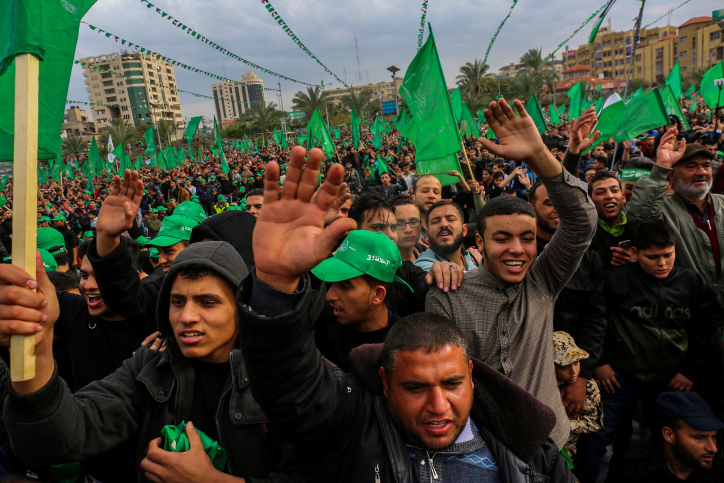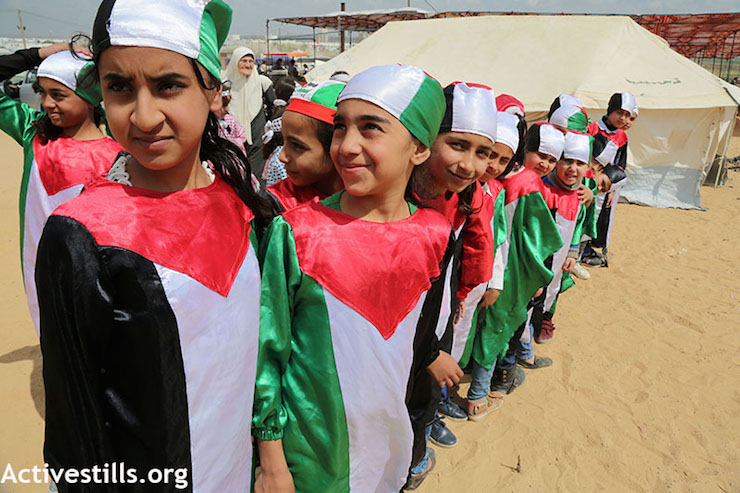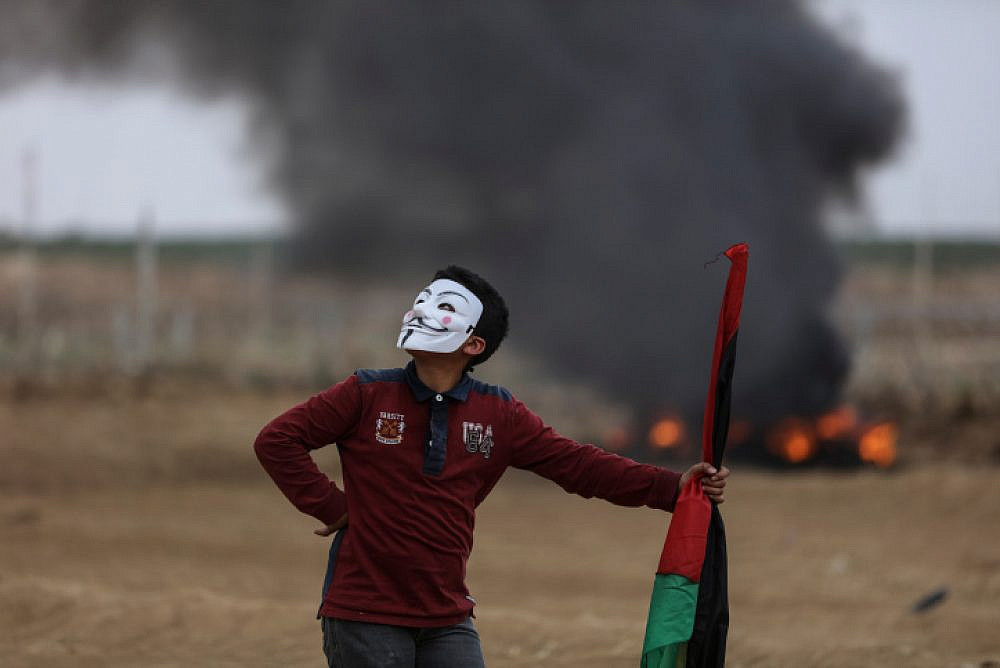A few years ago, Nour Hamdan, a 22 year-old Palestinian refugee from one of the Gulf states, moved to Gaza with her family. Raised in the diaspora on a robust narrative about her people and their history, she expected to find in Gaza a proud community with a strong, grounded national identity. But instead, Nour said, she found “Arabs who wish to free a piece of land to which they no longer have any true connection.”
Gaza society, Nour discovered, is deeply divided along political-ideological lines that have come to supersede the Palestinian struggle writ large. For the younger generation in particular — and 50 percent of Gaza’s population is younger than 15 — divisions based on political affiliation have distorted their Palestinian identity. Loyalty to a political party, whether it is Fatah, Hamas, or Islamic Jihad, takes precedence over their Palestinian identity and their commitment to the struggle for Palestinian freedom writ large. The result is that most of the young people in Gaza now base their national identity on politics and the military struggle against Israel.
Those who seek an identity not linked to partisan politics are now looking abroad.
Malak Al-Mughari, 17, says she feels more connected to Turkey, though she has never visited, than to Gaza, where she lives. On the day we chatted, she wore a Turkish dress and draped her headscarf in the Turkish style.
“I’m fascinated with Turkey! I love that country, the culture, the language, the music … everything! I wish I could live there,” Malak said. She explained that Palestinian identity is too political, and overly focused on “war and religious-patriotic songs about Al Aqsa” and the past.
Still, the pressure to be patriotic remains strong, with schools and families instilling the importance of Palestinian history and identity. The very reason all these political parties came into being was, and remains, the Israeli occupation.
Ahmed Abu Amer, 17, says most young Gazans blame his parents’ generation for the fragmentation of identity: “I think our parents don’t realize that their party affiliations make their children biased toward these factions rather than loyal to Palestine. At demonstrations, the flags of political parties are more common than the Palestinian flag.”

Another high school student, Fares Rabah, 17, offers a different point of view. He believes Gazans have a stronger sense of national identity than Palestinians living elsewhere.
“In Gaza, we don’t have the influence of Israeli culture, as they do in the West Bank. And we don’t have to accommodate foreign cultures like Palestinians in the diaspora,” he said. Fares argued that Palestinian flags are not necessarily a “purer” expression of identity than the flags of political parties. He acknowledges that a high number of Gaza youth want to leave the territory and live abroad. He insists, however, that they identify strongly as Palestinians. “We simply want to have a decent life,” he said. “Nobody wants to live or identify themselves with a prison!” he said. “We are proud of being Palestinians, but it’s also a heavy burden.”
I felt a bit anxious as I listened to them, since I know that a strong national identity is crucial to our survival as a people.
The majority of people in Gaza belong to a political party that conforms to their ideological definition of national identity. All of the parties base their manifestos on the goal of returning to Palestine, but they offer different roadmaps for getting there. The shared commitment to return can be seen in in the mass participation of Palestinians, across ideological and party lines, in the protests that were launched in March 2018 under the banner of The Great March of Return.
The problem is that for today’s youth in Gaza, Palestine has become a mental construct formed by history books, grandparents’ stories, news, photos and old songs. It no longer feels like a real place.

It’s common for different people from the same country to have contrasting definitions of their national identity. When, however, the physical embodiment of their identity — i.e., the land — is missing, so is its foundation and validation. Palestinians — and Gazans in particular — are deprived of this foundation, because they cannot return to the land of Palestine. Gaza itself is a desolate and ruined territory of densely populated refugee camps. It does not feel like a homeland.
Palestinians now have only their memory and various symbols to support their national identity, and this is worrying. Time dilutes memories. They become confused and lost, as their original holders die off. Perhaps this is why Nour felt that she couldn’t see Palestine in Gaza. What will happen when the Palestinians who are now older than 70, the holders of the original image of Palestine before the establishment of Israel, are all gone?

